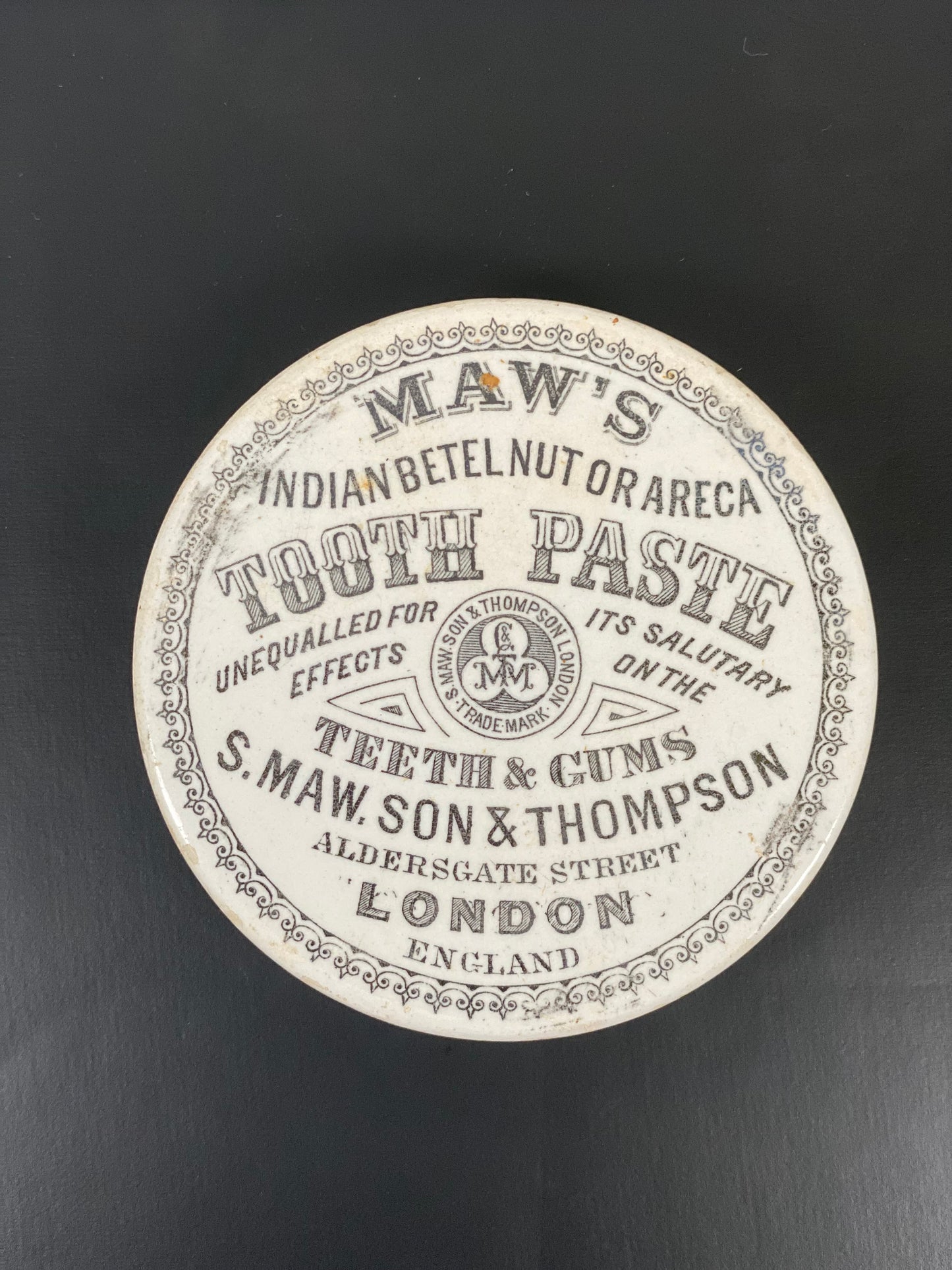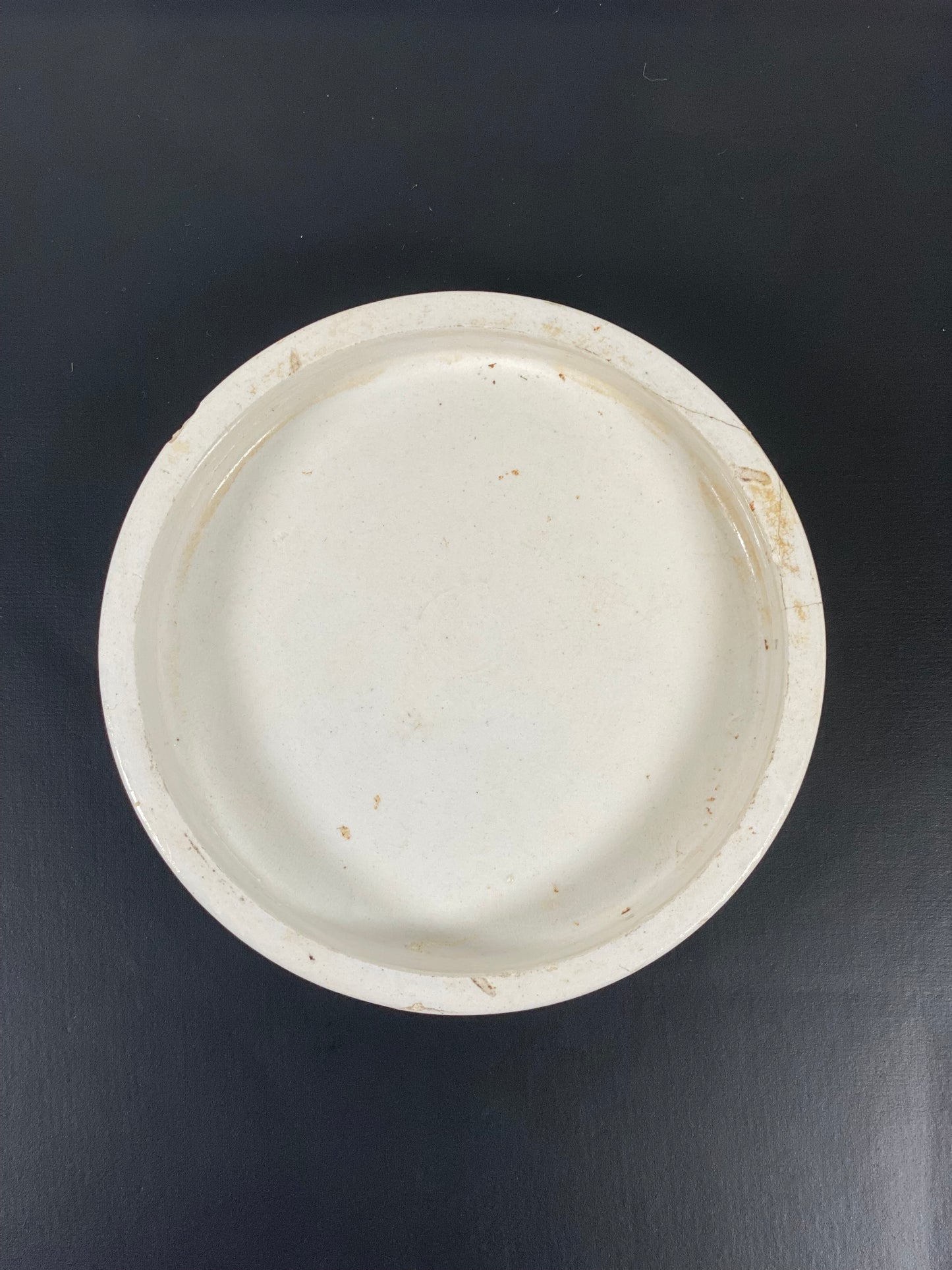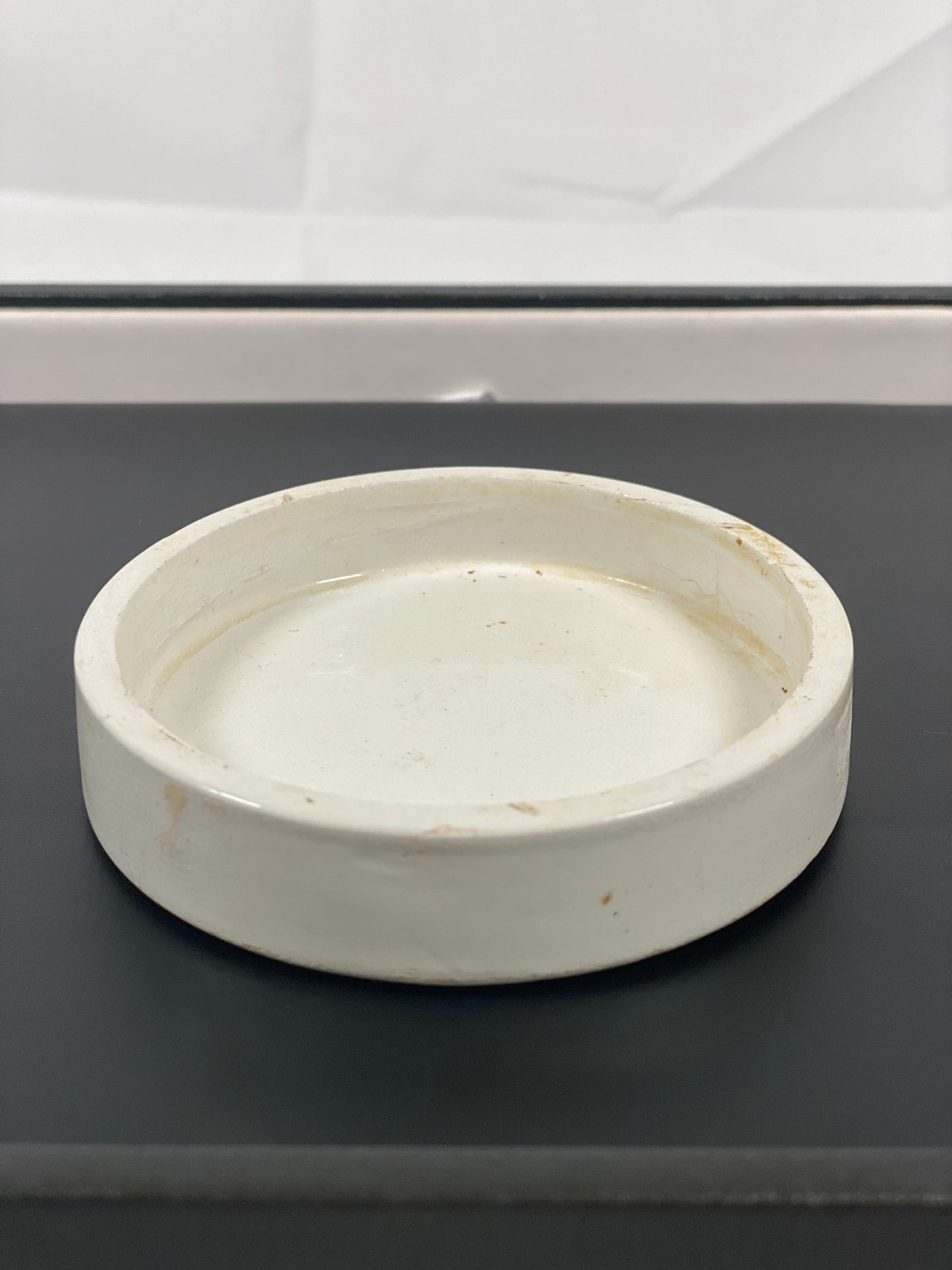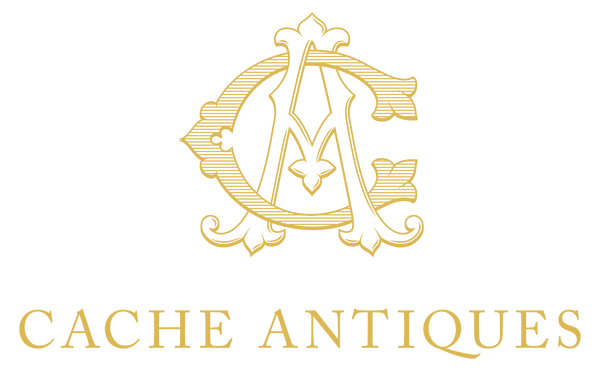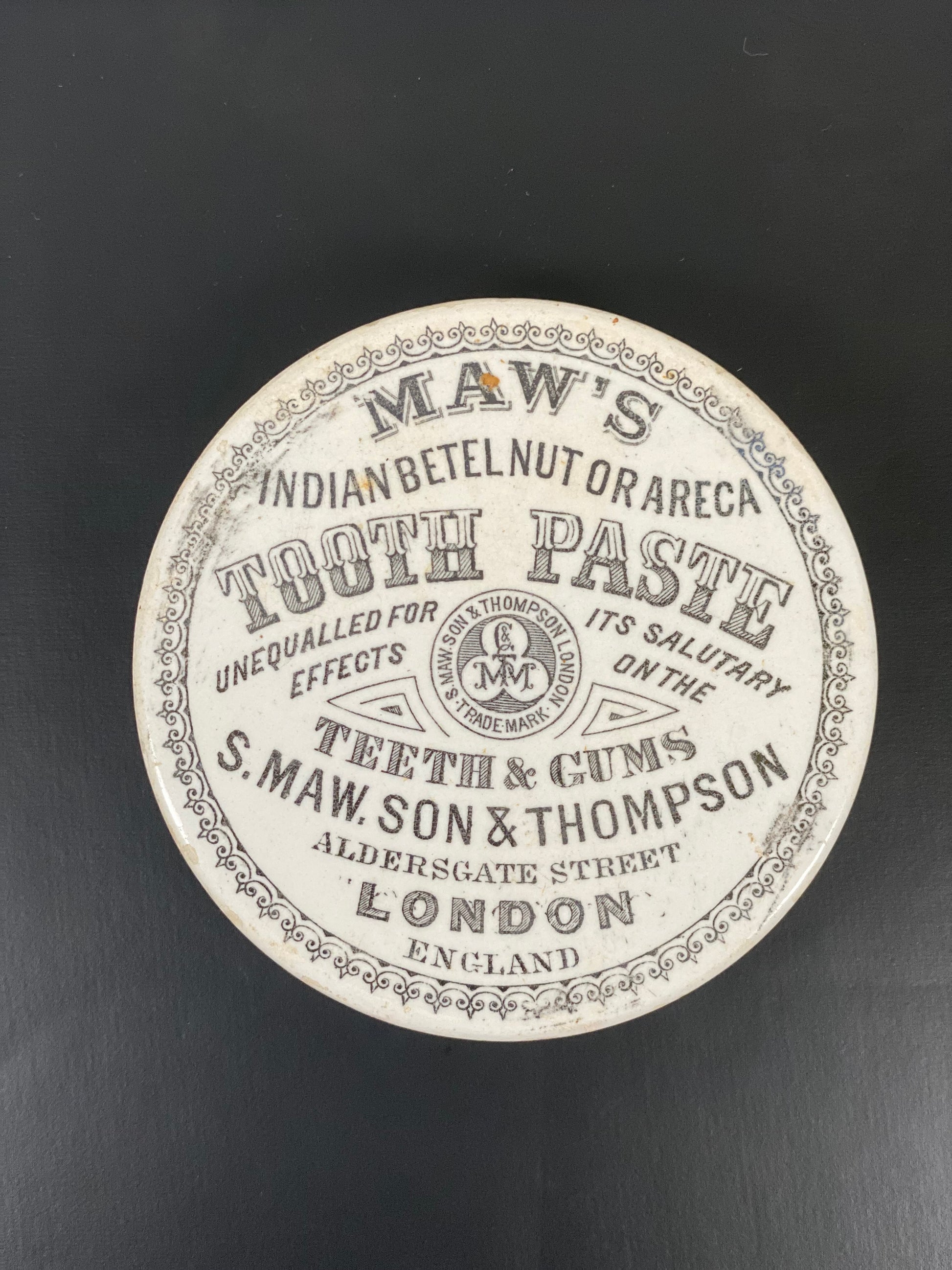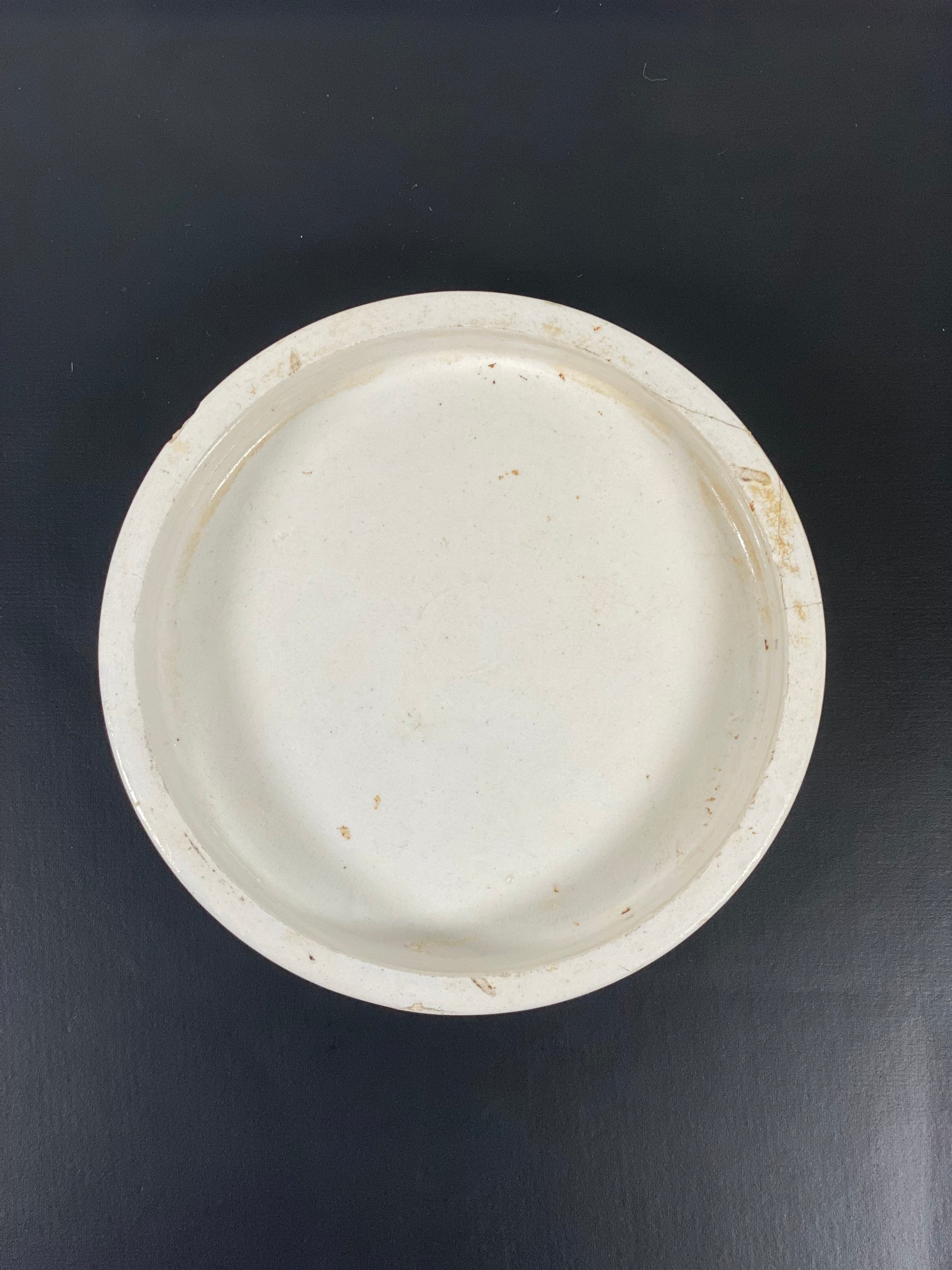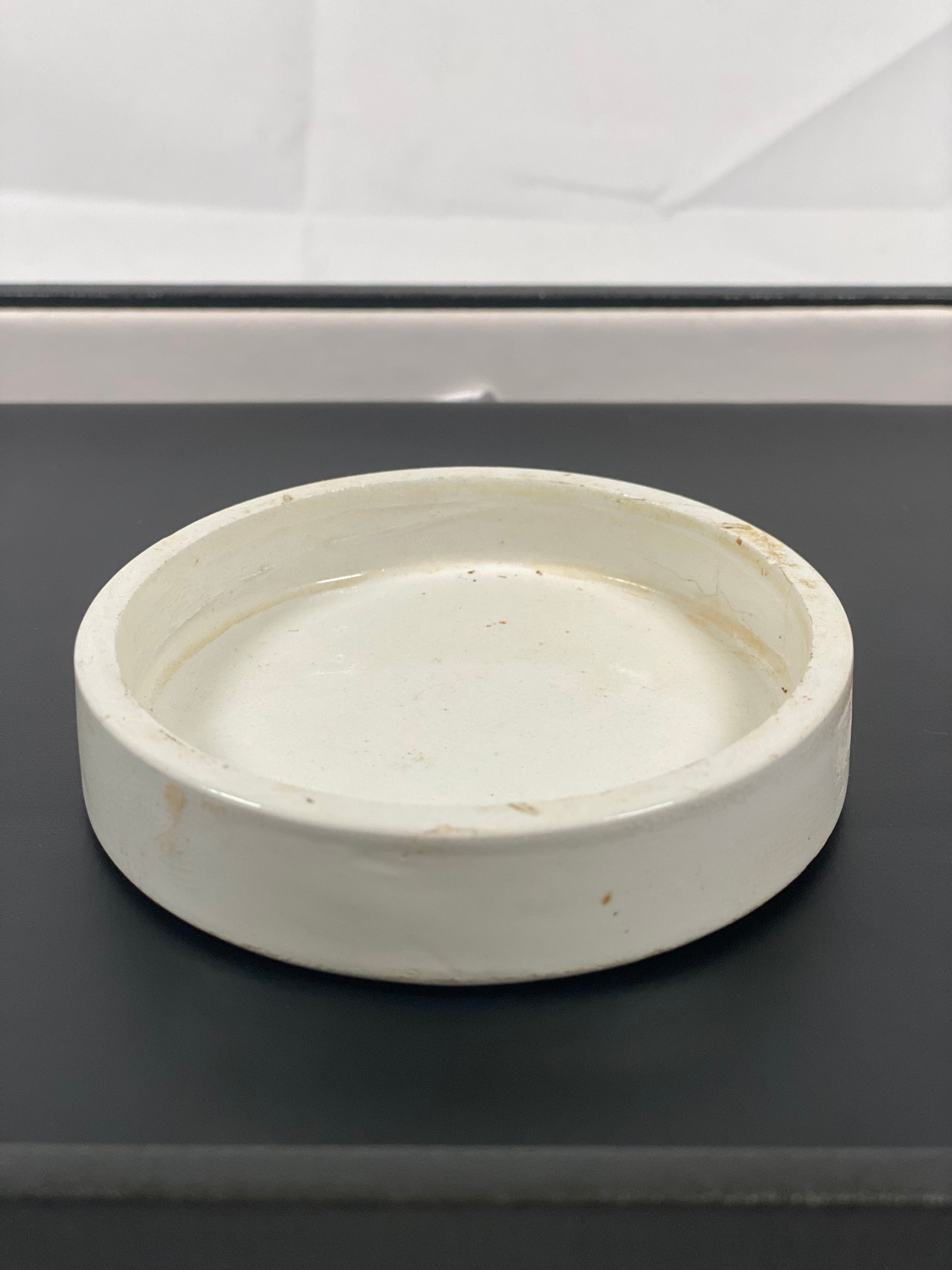cacheantiquessydney
19th Century Victorian Transferware Maw's Indian Betel Nut or Areca Toothpaste Pot Lid
19th Century Victorian Transferware Maw's Indian Betel Nut or Areca Toothpaste Pot Lid
Couldn't load pickup availability
From S. Maw. Son & Thompson, this tooth paste in London, England was highly popular in Victorian times. The partnership was active in making sundries and toilet articles from 1870-1901. The black and white lid is decorative and suitable for display. Toothpaste from this company was brought over to Australia during the turn of the century, with examples having been excavated in Brisbane.
The most popular commodity sold in these transferware pots was toothpaste, with areca nut and cherry toothpastes being the most popular. It is interesting to note that cherry was limited to color, resulting from the addition of carmine to the areca nut flavored paste, rather than an actual cherry flavour or taste. Tooth cleaning first become a hygenic standard in 18th century England, primarily for the upper classes, and was accomplished with a variety of tools.
Tooth paste began appearing in the 19th century, and was marketed in these beautiful little pots beginning in the 1880s, when nearly every chemist or pharmacist would formulate his own recipe and print their own pots for advertising. Betel Nut or Areca Nut was a highly popular formulation which cleaned the teeth with a mild abrasive action (somewhat amusingly, Areca Nut is also an effective deworming agent). The pot lid was made in London England and is transfer printed in black.
Price marked at AUD$280.
Measurements: 8.2cm dia., 1.7cm height.
These pots are often chipped from use and/or found buried in mud. This is one of the better examples we have found, with some wear to the lid as pictured., including one small chip. Some wear to glaze and to base of lid as well.
Shipping & Returns
Shipping & Returns
Share
